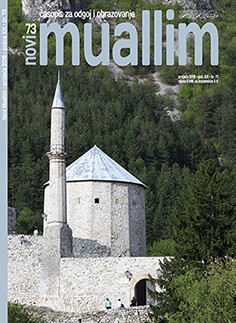UČESTALOST IGRANJA NA SREĆU I ZASTUPLJENOST PROBLEMATIČNOG KOCKANJA KOD SREDNJOŠKOLACA NA PODRUČJU GRADA ZENICE
GROWING TREND OF GAMES ON CHANCE AND THE INVOLVEMENT OF HIGH SCHOOL STUDENTS OF ZENICA CITY IN PROBLEMATIC GAMBLING
Author(s): Muharem AdilovićSubject(s): Education, Psychology, Substance abuse and addiction
Published by: Rijaset Islamske zajednice u Bosni i Hercegovini
Keywords: adolescence; gambling; betting; negative psycho-social impact; high-school students; academic achievement;
Summary/Abstract: The basic aim of this article is to analyse the phenomenon of gambling practise by the students of senior classes of high-schools in city of Zenica with accent upon problematic gambling which is related to the practice that tends to lead to development of negative psycho-social disorders as a consequence. The additional aims are to find out gender differences, to analyse the impact that involvement in gambling has upon the academic achievement of students and to establish in which form of gambling are the high-school students most commonly involved. The research was conducted upon the sample of N=172 students of senior classes of the high-schools namely: The First Gymnasium (N=50), Mixed High-school “Mladost” (N=72), The Industrial High-school (N=50). The average age of the sample students is 17.4 years, and gender prevalence is males with 68.8%, whereas the female involvement was 30.2%. The research instruments we used were: 1. a questioner regarding socio-demographic characteristics of the students, 2. a questioner regarding the gambling activities (Ricijaš, Dodig, Huić i Kranželić, 2011), 3. the Canadian questioner regarding the gambling of adolescents – CAGI (Tremblay, Stinchfield, Wiebe i Wynne, 2010). The results show that one third of the sample students have gambled in the past three months, the practise of gambling is more common amongst boys and lesser amongst girls, it shows that the academic scores have no impact upon gambling habits, i.e. gambling is practised equally by good as by poor students, it also shows that they spend large amounts of money relative to their economic power and the students who gamble display exceptionally high degree of negative psycho-social effects related to gambling. The results of this research are an initiation of further and more detailed research and may be used as a line of direction for designing preventive programs for the benefit of the youth.
Journal: Novi Muallim
- Issue Year: 2018
- Issue No: 75
- Page Range: 46-55
- Page Count: 10
- Language: Bosnian

